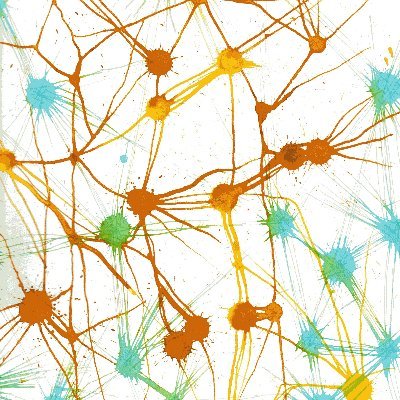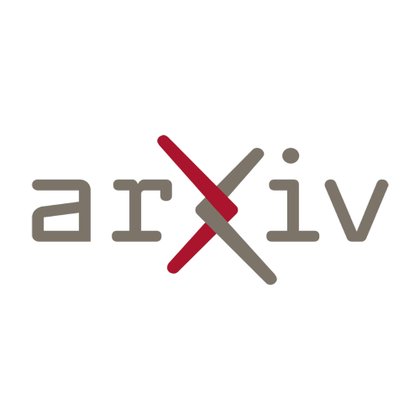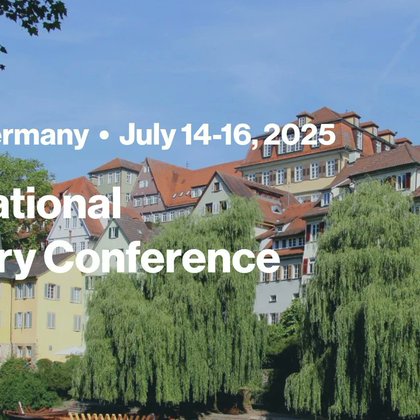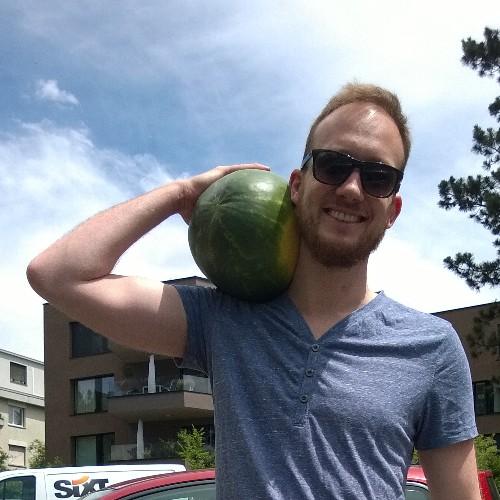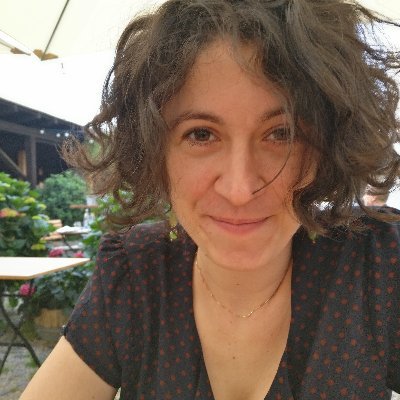
Georgia Koppe
@GeorgiaKoppe
Followers
284
Following
158
Media
7
Statuses
64
Professor for Scientific Computing @UniHeidelberg Reserach Group Leader @zi_mannheim HITKIP
Heidelberg, Baden-Württemberg
Joined June 2019
Postdoc Opening! We’re hiring a postdoc at the intersection of neuroscience, ML, and/or optimal control and RL at Hertie AI, Tübingen. Find the add here: https://t.co/AOi8pj2T36
0
7
12
Our new preprint compares naïve baselines, network models (incl. PLRNN-based SSMs), and Transformers on 3x40‑day EMA+EMI datasets. PLRNNs gave the most accurate forecasts, yielded interpretable networks, and flagged “sad” & “down” as top leverage points. https://t.co/9trDupOR4A
1
13
33
We wrote a little #NeuroAI piece about in-context learning & neural dynamics vs. continual learning & plasticity, both mechanisms to flexibly adapt to changing environments: https://t.co/UR20TGtJ8L We relate this to non-stationary rule learning w rapid jumps. Feedback welcome!
arxiv.org
Modern AI models, such as large language models, are usually trained once on a huge corpus of data, potentially fine-tuned for a specific task, and then deployed with fixed parameters. Their...
0
18
81
📢 Early registration prices end tomorrow 15 April! 🚨 The 3rd Computational Psychiatry Conference is 14-16 July in Tübingen, Germany. https://t.co/VvmFbvGNt1 Speakers inc. @PhilCorlett1 @CFraza Andreas Heinz @GeorgiaKoppe Jill O'Reilly @chandra_sripada Sophie Valk @torwager
cpconf.org
Tübingen, Germany (July 14-16, 2025)
0
2
10
Our revised #ICLR2025 paper & code for a foundation model architecture for dynamical systems is now online: https://t.co/R5sSZtd9Yq ... incl. add. examples of how this may be used for identifying drivers (control par.) of non-stationary processes. And please switch platform!
Interested in interpretable #AI foundation models for #DynamicalSystems reconstruction? In a new paper we move into this direction, training common latent DSR models with system-specific features on data from multiple different dynamic regimes and DS: https://t.co/uaf1RcyTBi 1/4
0
9
33
🚨Keynote speakers for the Computational Psychiatry Conference (14-16th July, Tubingen) announced 📢 Very excited to have excellent keynotes across theory-driven CP, machine learning, and clinical psychiatry: Andreas Heinz @GeorgiaKoppe
@chandra_sripada Sophie Valk @torwager
1
10
32
3) Finally, our model can accurately extract distinct DS features that differentiate between subjects—even with short fMRI datasets. This paves the way for a data-driven approach to learning brain dynamics, and extracting features for classification and regression. #Neuroscience
0
2
6
Key innovations: 1️) A new SSM-based DSR algorithm for data modalities with non-invertible observation models, scalable to large datasets, SSMs, and long filters. 2️) An evaluation scheme for selecting DSR models based on short empirical time series.
1
2
9
Can we learn dynamical systems from short, noisy #fMRI data? Building on advanced frameworks for dynamical systems reconstruction (DSR), we present a novel scalable SSM DSR algorithm for fMRI. With Eric Volkmann, Alena Braendle & #DurstewitzLab Explore: https://t.co/BUyy1wu1dT
3
23
113
We demonstrate that data-driven strategies can be effective in identifying behavioral contingencies and enhancing the personalized selection of digital interventions. Together with @DurstewitzLab @UReininghaus @HamidrezaJamal9 2/2
0
5
15
Can we use data-driven tools to guide the selection of ecological momentary interventions (EMI) to improve mental health? In this new study, we borrow concepts from control theory to personalize and optimize the selection of EMI. https://t.co/ZwttorUIrX 1/2
0
12
20
📢New work on hippocampal assemblies & theta! https://t.co/NQ3jdNVD0U It was a pleasure to work with @AleksDomanski, Nadine, Tim, @kipp_freud, @DurstewitzLab, and Matt Jones (@SleepDetectives). @SantAnnaPisa @BristolNeurosci @zi_mannheim @BernsteinNeuro 🧵[1/11]
1
25
109
Interested in interpretable #AI foundation models for #DynamicalSystems reconstruction? In a new paper we move into this direction, training common latent DSR models with system-specific features on data from multiple different dynamic regimes and DS: https://t.co/uaf1RcyTBi 1/4
5
32
161
We show applications like transfer & few-shot learning, but most interestingly perhaps, subject/system-specific features were often linearly related to control parameters of the underlying dynamical system trained on … 2/4
1
4
7
This gives rise to an interpretable latent feature space, where datasets with similar dynamics cluster. Intriguingly, this clustering according to *dynamical systems features* led to much better separation of groups than could be achieved by more trad. time series features. 3/4
1
2
3
Fantastic work by the incomparable @brenner_manuel and Elias Weber, together with @GeorgiaKoppe! 4/4
0
2
5
Creating digital twins of social interaction behavior with #AI! Our study shows how generative models can predict interactions from limited data, revealing hidden dynamics. Together with @brenner_manuel @DurstewitzLab. Explore: https://t.co/4zoEniAQcc
#DigitalTwin #SocialBehavior
0
6
21
Just wanted to stop by & say: We have 2 new accepted #NeurIPS2024 papers: 1) @brenner_manuel , Hemmer, @Zahra__Monfared, DD: Almost-Linear RNNs Yield Highly Interpretable Symbolic Codes in Dynamical Systems Reconstruction --> *this takes DSR to a new level!*, details to follow
1
14
47
2) Volkmann, Brändle, DD, @GeorgiaKoppe: A scalable generative model for dynamical system reconstruction from neuroimaging data --> efficiently scales up fMRI analysis with generative DSR models! Again, details to follow ...
0
3
13
Are you a mental health practitioner curious about how our 'Experience Sampling' tool can enhance your practice? Watch the info video below to learn more! https://t.co/MEvvOQWjXz
0
7
12
